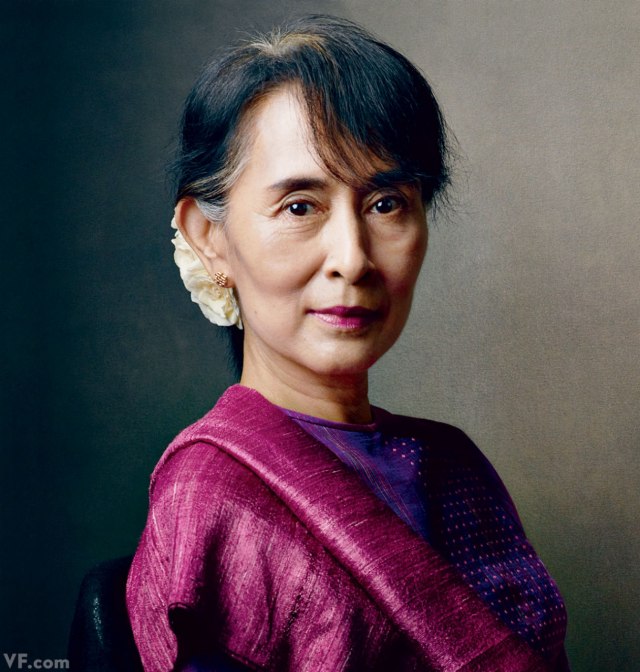 Aung San Suu Kyi’s opposition party, the National League for Democracy (NLD) is on the verge of securing a landslide victory in the Sunday’s historic election; to end the army’s decade-long control of political powers in the country.
Aung San Suu Kyi’s opposition party, the National League for Democracy (NLD) is on the verge of securing a landslide victory in the Sunday’s historic election; to end the army’s decade-long control of political powers in the country.
Though, outcome of the polls is yet to be officially announced, latest figures show that the Suu Kyi-led NLD is already coasting home to a landslide win. According to results made available by Tuesday afternoon, NLD had clinched 78 of the 88 lower house seats.
“We probably will get between, around 75 percent in the union legislature,” Suu Kyi said.
The ruling Union Solidarity and Development Party (USDP) meanwhile faced a rout after taking just five of those spots in the 440-seat house.
“Our USDP lost completely. The NLD has won,” senior party member Kyi Win said at the party’s headquarters in the capital Naypyidaw.
“This is the fate of our country. Let them (the NLD) work. Daw Aung San Suu Kyi has to take responsibility now… we congratulate them anyway.”
The November 8 polls was the first to be contested by Suu Kyi’s party, NLD since 1990; and it witnessed voter turnout of around 80 percent as Myanmar’s long-suffering people came out enmass to make their voice known at the ballot box.
The military ruled the country with an iron fist for half a century, killing, jailing and silencing dissenters and flat-lining the economy with madcap policies and rampant corruption, before stepping aside in 2011 in favour of a quasi-civilian regime.
NLD officials and supporters were confident of a major win, but were cautious of kickback from the still powerful army, whose stake in the future is guaranteed by a 25 percent bloc of reserved seats in parliament.
“I think the results will come soon, but I’m worried, “I don’t know if the current government will seize power (if they lose) or not, but I hope they won’t,” said Ma Pyone, a vegetable seller in downtown Yangon.
The NLD needs 67 percent of contested seats across both houses of parliament for a majority. But anything higher would bolster its parliamentary leverage against the army.
Suu Kyi’s political ascent is also capped by the army-scripted constitution that bars anyone with foreign children from the presidency. Her two sons, much of whose upbringing she missed while under house arrest in Yangon, are British.
A massive majority would strengthen her hand in selecting a favourable president, and she vowed before the election to be “above the president” in the event of an NLD win.
If the NLD is victorious it will inherit a country crushed by poverty, with several ethnic rebellions and religious intolerance simmering.
Suu Kyi will also have to work with the army, whose parliamentary bloc is flanked by a fearsome reputation.
There was scant early evidence that the election result would be warped by massive fraud, according to poll observers, but voters remained on guard after bitter experience of previous flawed polls.
The head of the European Union’s monitoring mission, Alexander Graf Lambsdorff, praised authorities for doing a “good job” in holding the election across a vast and impoverished country.
“This election is not over yet” he said, but added the vote count was going on in a “transparent manner”.
The NLD recorded a landslide in the last elections it contested in 1990 only for the army to ignore the result and intensify its repressive rule.
But in a televised statement before Sunday’s election, President Thein Sein said both the ruling party and the army will respect the result.
Buoyant red-clad supporters of Suu Kyi’s NLD sang and danced for a second night on Monday outside the party base in Yangon, cheering each confirmed win as expectations of a landslide mounted.
But on Tuesday morning the big screen and loudspeakers, which 24 hours earlier carried an impromptu address by Suu Kyi, were suddenly removed.
The US welcomed the “peaceful and historic” election but urged caution until official results were confirmed.
Election officials said it could take days for the full results to be officially announced.
By Olisemeka Obeche (with agency reports)


